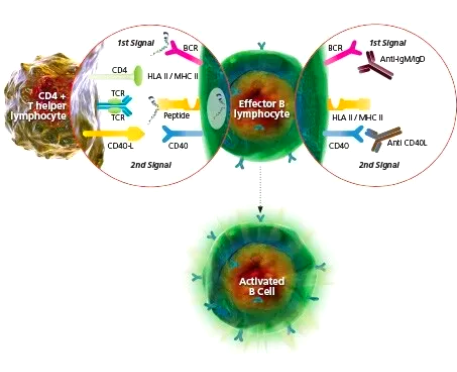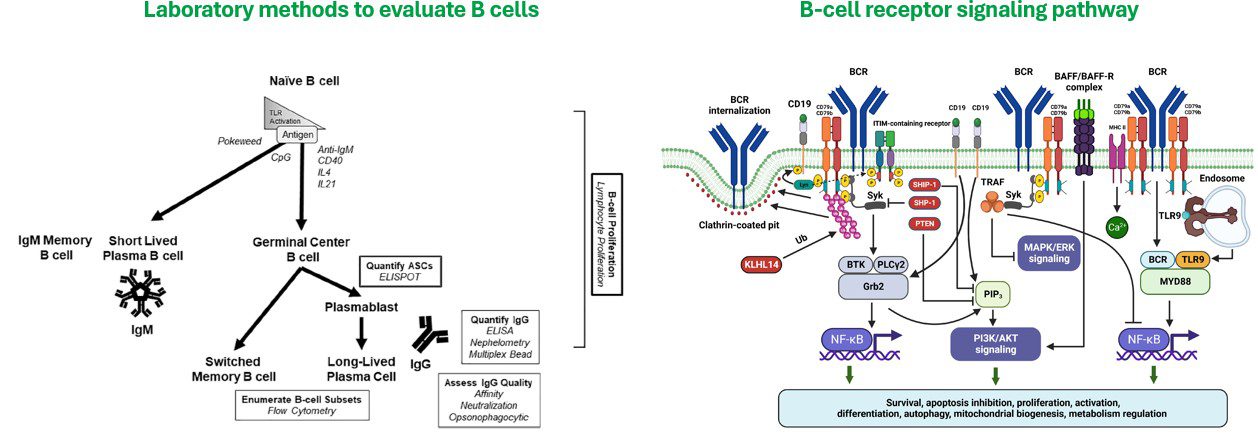Human B Cell Assays
B Lymphocytes
B lymphocytes are an essential component of the humoral immune response. Produced in the bone marrow, B cells migrate to the spleen and secondary lymphoid tissues where they mature and differentiate into immunocompetent B cells. A part of the adaptive immune system, B cells are responsible for generating antibodies to specific antigens, which then bind via B cell receptors.
B cell activation, like T cell activation, also requires two signals. The first signal is provided by the B Cell Receptor (BCR), a surface-expressed antibody binding to its cognate antigen. This signal may also be mimicked using anti-IgM or IgD antibodies. The second signal is achieved through engagement of co-stimulatory molecules such as CD40 and cytokine signaling. Alternatively, components of bacterial cell walls, such as Lipopolysaccharide (LPS), and antigens with highly repetitious molecules may signal B cell activation directly.


Our B Cell assay Services Include:
- Target expression profiling on B cell subsets (resting and activated)
- B cell chemotaxis, migration, and adhesion
- Modulation of antibody production
- Screening for autoantibodies and autoimmune reactions
- Modulation of antigen-presenting cell function and cytokine release
- Opsonophagocytic assay (to measure the ability of IgG Ab to induce phagocytosis and killing of bacteria)
- B Lymphocyte proliferation assay (induced by Pokeweed mitogen, anti-IgM, CD40L with IL-4 or IL-21, and the TLR9 ligand CpG)
